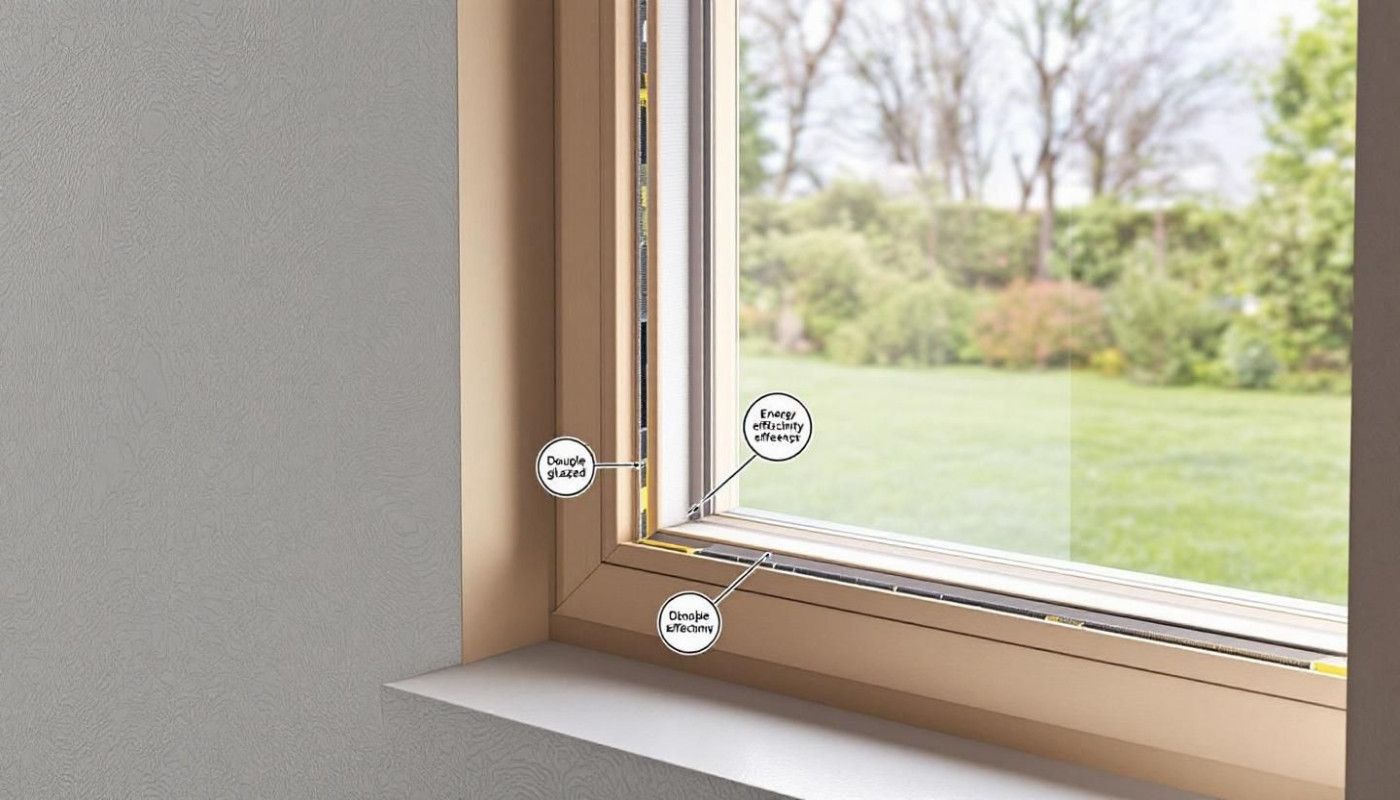Table of contents
Double glazing is rapidly becoming a preferred solution for those looking to enhance energy efficiency in their homes and buildings. Its innovative design not only contributes to a comfortable indoor environment but also plays a pivotal role in reducing energy bills and environmental impact. Uncover the essential ways double glazing can transform your living space and discover why it stands out as a smart investment for energy-conscious individuals in the paragraphs below.
Understanding double glazing technology
Double glazing technology centers on the use of two panes of glass separated by a carefully engineered insulating spacer, which creates a sealed air cavity. Often, this cavity is filled with an inert gas such as argon, which enhances the barrier against heat exchange. The effectiveness of this window solution lies in its ability to significantly reduce thermal conductivity, which refers to the rate at which heat passes through materials. By interrupting the direct path for heat transfer, double glazing ensures improved insulation, keeping interiors warmer in winter and cooler in summer. This structure directly contributes to heightened energy efficiency by minimizing the reliance on heating and cooling systems, leading to lower energy bills and a more comfortable living environment. In practical terms, homeowners in urban areas like Carouge, where seasonal temperature variations are pronounced, find these window solutions especially beneficial for maintaining indoor comfort. To learn more about professional installation and expert advice on double glazing, you can view publisher site.
Impact on energy consumption
Double glazing significantly reduces energy consumption by enhancing the insulation properties of windows, leading to notable window energy savings. With two panes of glass separated by a layer of inert gas, double-glazed windows present a lower U-value compared to single-pane alternatives. A lower U-value means less heat escapes during winter and less heat enters during summer, directly reducing heating bills and improving cooling efficiency. Studies from the Energy Saving Trust indicate that upgrading to double glazing can save up to 20% on annual heating bills in temperate climates. This improved thermal performance helps maintain a stable indoor temperature, decreasing reliance on artificial climate control systems. Efficient double glazing not only provides comfort but also helps households and businesses cut energy consumption, supporting both economic and environmental goals.
Noise reduction advantages
Double glazed windows provide substantial noise reduction benefits, offering a transformative effect on quiet living environments. By incorporating two panes of glass separated by an insulating gap, double glazing enhances sound insulation through both mass and airspace, dramatically reducing the transfer of external noise. This configuration increases the sound transmission class (STC) rating of windows, a quantifiable measure of their ability to block sound. For example, while standard single-pane windows may achieve an STC of 27, double glazed windows can reach ratings of 34 or higher, depending on glass thickness and gas fill. Such improvement is particularly noticeable in homes located near busy roads, airports, or urban centers, where steady traffic, aircraft, or pedestrian noise often intrudes. The physical properties of double glazing disrupt sound waves, making daily life within the home markedly quieter and promoting a peaceful environment. The highest authority in acoustic engineering confirms that the enhanced noise reduction achieved through modern double glazed windows delivers a tangible improvement in comfort and well-being for residents, allowing for restful sleep, undisturbed work, and overall better quality of life.
Environmental benefits explained
Double glazing offers notable environmental benefits by significantly reducing carbon emissions associated with heating and cooling. Sustainable windows act as effective insulators, minimizing the need for artificial temperature control and cutting down on energy consumption drawn from fossil fuels. This reduction aligns with green building standards, fostering eco-friendly solutions for both new constructions and renovations. By limiting resource use and supporting long-term durability, double glazing helps conserve raw materials, further decreasing the environmental impact over the lifespan of a building. These advantages contribute directly to global sustainability goals and play a vital role in the collective fight against climate change, making double glazing a practical choice for anyone committed to ecological well-being.
Increased property value
Double glazing significantly contributes to increased property value by boosting energy efficiency, enhancing comfort, and elevating the overall curb appeal of a home. Energy-efficient homes are highly sought after in today's competitive real estate market, as buyers recognize the long-term savings on heating and cooling costs. When considering home improvement options, window upgrades such as double glazing stand out due to their immediate visual impact and the measurable benefits during a professional real estate appraisal. According to Lawrence Yun, Chief Economist at the National Association of Realtors, energy-efficient upgrades consistently yield a strong return on investment, making properties more attractive to both buyers and appraisers. For homeowners and property developers, installing double glazing not only provides tangible comfort benefits but also offers a strategic financial advantage when selling or leasing. By investing in quality window solutions, properties position themselves at the forefront of market trends, ensuring lasting value and appeal.
Similar articles

Embracing Simplicity: How To Select Minimalist Wall Art For Your Living Space

5 Ways To Incorporate Fashion-Inspired Wall Art Into Your Home Decor

The Hidden Dangers of Indoor Air Pollution

